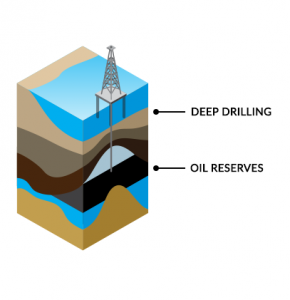All Categories
Featured
Table of Contents
Marine Geophysical Surveying - in West Swan Aus 2020
This work is increasingly contracted out, so consultancies provide another source of work. Consultancy companies vary in size, from extremely little companies to big multinationals. Some consultancies are rather specialised in using particular geophysical strategies or operating in specific areas, while others offer a more varied variety of services to their consumers.
The extraction of gas from garbage dump sites is another location of work and this may grow in the future. Expedition companies might undertake work for construction firms, water business, mining business and environmental firms, so geophysicists may be used in any of these settings. Other employers include: geological surveysgovernment bodies and agenciesuniversities and research institutes.


Vacancies might be noted in the oil and gas sector press. Recruitment is impacted by oil rate variations and the level of competition for positions varies depending on this. Careers Days, which cover the complete variety of geoscience careers and are usually gone to by a number of key industry companies, are run by The Geological Society.
Geophysicist Salary in Oakford Australia 2020
Some of the big oil and gas companies use a complete two-year structured training program throughout the breadth of geophysics, consisting of the chance to experience work in different groups before specialising in one location. Your training might include deal with: existing wellsmagnetic and gravitational potential field data analysisresearchrock analysis. However, it's more normal for your preliminary training to be supplied on the task.

There might be a probationary period during which you work alongside an experienced colleague. Competency-based appraisals take location routinely in many companies. In smaller sized companies, and for academic posts, there is not likely to be any formal training - you'll be expected to start work straightaway and get skills as you go along.
If you work for a smaller company, you may discover that you need to take responsibility for setting up and funding your own advancement and training. If you have a geology degree, subscription of The Geological Society can be beneficial for networking and for keeping up to date with the industry.
Geophysical Surveying in Claremont Oz 2022
You may likewise discover it beneficial to join the PESGB (The Petroleum Exploration Society of Great Britain, which has a geophysics special interest group. After a probationary period, and as soon as you've acquired some experience, you might progress to senior geophysicist, then team leader and then into a senior function in management.
The ease of motion between functions depends upon the business structure. Research study at Masters or Ph, D level in a subject related to geophysics or geosciences might assist with your profession development and development. The employment market within the oil and gas market is really dependent on rate and this may affect your opportunities for profession progression.
Nevertheless, not all jobs are dependent on the oil and gas markets. For experienced geophysicists, freelance consultancy provides a great route for profession advancement. You can likewise specialise in a particular area of geophysics. As a geophysicist, you're likely to have numerous jobs throughout your working life. International movement is vital for dealing with peaks and troughs in various nations at various times.
Geophysicist Job Description in White Gum Valley Oz 2023
From geophysics, it's possible to concentrate on seismology (completing further training to end up being a seismic interpreter) or to move into associated locations such as engineering geology or hazard forecast.
Deciding what to study in college is a difficult option. Even if you understand that your field of interest lies in science, what program of research study is best for you?
But the initial step to achieving your goal of becoming a geophysicist is making a degree. Even for entry-level positions in the field of geoscience, you'll need a bachelor's degree (a geophysicist college degree) from a recognized college or university. Some research positions need candidates to hold master's degrees or even Ph.
What Is Geophysics? in North Perth Aus 2021
Postgraduate degree are particularly crucial if you plan to teach at a four-year organization. Geophysicists use physics concepts and methods to study the gravitational, magnetic, and electric fields of the earth. This advances scientists' knowledge of both the planet's interior core and its surface. Geophysicists must be able to: analyze rocks, pictures, and other pieces of data conduct research study both in the field and in laboratories develop maps and charts of their findings write reports To accomplish all this, students need a specialized education for geophysicist careers.
As specified above, you'll require a bachelor's degree in geoscience or an associated discipline, such as a physical science or a natural science, to land an entry-level task. But trainees can also prepare by learning subjects like: Biology Chemistry Computer system science Engineering Mathematics Physics The above geophysicist majors provide a more generalized method to a single scientific discipline, but many programs require trainees to take several geology course.
Table of Contents
Latest Posts
Geophysical And Geotechnical Assessment in Mount Hawthorn Western Australia 2020
Geophysicist Bob Embley: Ocean Exploration Careers in Alexander Heights Oz 2022
Geophysical Surveys: Definition & Methods in Woodlands Western Australia 2021
More
Latest Posts
Geophysical And Geotechnical Assessment in Mount Hawthorn Western Australia 2020
Geophysicist Bob Embley: Ocean Exploration Careers in Alexander Heights Oz 2022
Geophysical Surveys: Definition & Methods in Woodlands Western Australia 2021